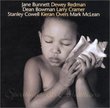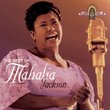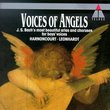| All Artists: Jonathan Summers, Carl Orff, Riccardo Muti, Arleen Auger, John van Kesteren Title: Orff: Carmina Burana Members Wishing: 0 Total Copies: 0 Label: EMI Classics Release Date: 10/19/1999 Genre: Classical Style: Opera & Classical Vocal Number of Discs: 1 SwapaCD Credits: 1 UPC: 724357357326 |
Search - Jonathan Summers, Carl Orff, Riccardo Muti :: Orff: Carmina Burana
 | Jonathan Summers, Carl Orff, Riccardo Muti Orff: Carmina Burana Genre: Classical
At first glance, this doesn't seem like conductor Riccardo Muti's cup of tea. It's a work without many subtleties, one that seems to need a policeman more than an interpreter. But Muti lets it rip--the joyous moments are s... more » |
Larger Image |
CD DetailsSynopsis
Amazon.com essential recording At first glance, this doesn't seem like conductor Riccardo Muti's cup of tea. It's a work without many subtleties, one that seems to need a policeman more than an interpreter. But Muti lets it rip--the joyous moments are superb, the mock-sentimental moments charming, changes in rhythm properly jarring, and the energy level very high. Soprano Arleen Auger almost makes her high-flying part seem simple. Warning: The louds are very loud. --Robert Levine Similar CDs
Similarly Requested CDs
|
CD ReviewsAuger: the perfect soprano for Carmina Burana Raul Saavedra | Caracas, Venezuela | 01/09/2003 (5 out of 5 stars) "Musically speaking this is my favorite Carmina Burana recording. You might check my review here on Amazon of the Joschum/Fischer-Dieskau recording of Carmina Burana, which is supposed to be among the best Carmina Burana's recorded.Well, the soprano in that recording simply has nothing to do compared to the way Ms. Arleen Auger sings in this one. This CD can easily convince you that Ms. Auger is simply the perfect soprano for Carmina Burana, and one of the most beautiful voices of all time. If you haven't listened to her "Dulcissima" in this CD you are simply missing one of the most beautiful pieces of lyrical singing ever recorded. Moreover, back to the comparison with the other recording, Dieskau being one of the best baritones in the world (Lieder-wise at least) I think doesn't have the fortes and character of J. Summers in this recording. Now, I couldn't disagree more with some other reviewer's opinion about the "realism" of the loudness levels in this CD. The orchestra is quite unrealistically too loud with respect to the solos sounding quite too far away. This I say being sort of an audio enthusiast, having a relatively very good sounding hi-fi equipment and speakers (not mass market ones), and putting hardware audiophilia aside, also having attended many live performances of classical music, particularly several Carmina Burana's which I'm specially fond of.This CD can make you think that it was recorded having the microphones inside the orchestra section, so the solo singers in many cases sound quite too far asay and almost covered by the orchestra closeness and loudness. Needless to say, that would NOT be ideal to realistically record the wall of sound that an audience in front of a Carmina Burana live performance would perceive. But I think that even such mic position wasn't the case for this recording, because some times the choirs are way too soft, and some others appropriately loud with respect to the orchestra. So I think the wild but inconsistent volume level issue in this CD was the result of artifacts introduced by recording engineers.Despite that issue, this CD is a must have among your Carmina Burana CD's. Notice what I imply in that comment: you simply can't have just one recording of Carmina Burana if you really love the piece! Another recommendation is again the Joschum/Dieskau recording which I also own and can recommend, even though not as much as this one. After you listen to Ms. Auger in this one, almost certainly you will have this rendition of the Dulcisima, and this Carmina Burana overall, as your very favorites." Volume Control, Please D. Dwyer | USA | 03/11/2000 (3 out of 5 stars) "This performance of Carmina Burana is well executed under the direction of Ricardo Muti. The chorus is competent and has excellent blend. The soloists have a strong command of the opus and clearly enunciate the text. The major difficulty in the recording lies in the extremely poor control of the recorded volume. It is not possible to simply listen to the work. Because of the extreme range of volumes, it is necessary to continually adjust the volume so as to either heard the work or not be deafened. This mars an otherwise excellent recording." How can you not dig it????? R. Hogg | West Virginia | 07/30/2005 (5 out of 5 stars) "First off, I want do dismiss all claims that this recording is unbalanced. The score to Carmina Burana calls for extreme dynamic contrasts, and this recording gives you just that. Whether they need be this extreme is a matter of opinion, but I, for one, think it adds to the performance.
Musically speaking, Carmina Burana is Orff's masterpiece, and should be listened to by everyone at least once in their lives. I don't know if this is THE recording, but it sure is a darn good one. The balance between orchestra and choir(s) is excellent. The recording quality is amazing, and the ensemble sound is, well, very German in approach, very raw, passionate, Wagnerian even. Excecution is nearly flawless on all accounts, and the Dulcissime is absolutely gorgeous! Ms. Auger sings it beautifully, hitting the high notes with ease. The best I've heard by far! And the other soloists are no less amazing, either. I thoroughly recommend this recording, though I warn you, this is not for car listening. You'll blow your speakers, your ears, and probably your airbag when the music startles you, distracts you, and you run into a tree. You have been warned!" |

 Track Listings (25) - Disc #1
Track Listings (25) - Disc #1


![Perennial Favorites [ENHANCED CD]](https://nationalbookswap.com/cd//m/10/6810/366810.jpg)






